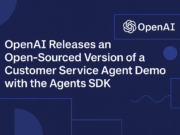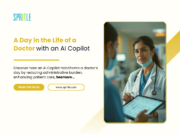Within the quest to develop new medication, the journey from laboratory analysis to scientific software is advanced and costly. The drug discovery course of entails a number of phases, together with goal identification, drug screening, lead optimization, and scientific trials. Every stage requires a considerable funding of time and sources, resulting in a excessive threat of failure. Extra particularly, the problem of predicting a drug candidate’s absorption, distribution, metabolism, excretion, and toxicity (ADMET) properties represents an important bottleneck. With out environment friendly strategies for precisely predicting these properties, promising compounds typically fail at later phases of growth, resulting in important monetary losses. Machine studying (ML) presents a possibility to speed up drug discovery by predicting properties and behaviors with out the necessity for costly and prolonged experiments. Nonetheless, efficiently implementing ML in drug discovery requires data throughout a number of domains, together with chemistry, biology, and knowledge science, posing a excessive barrier to entry for non-experts.
Researchers from the College of Southern California, Carnegie Mellon College, and Rensselaer Polytechnic Institute launched DrugAgent, a multi-agent framework geared toward automating machine studying (ML) programming in drug discovery. DrugAgent seeks to deal with the challenges concerned in using ML for drug discovery by offering a structured and automatic strategy. Particularly, DrugAgent leverages Giant Language Fashions (LLMs) to carry out duties autonomously, from knowledge acquisition to mannequin choice, thereby enabling pharmaceutical scientists to learn from AI while not having intensive coding experience. DrugAgent systematically explores numerous concepts and builds domain-specific instruments that cater to the distinctive wants of drug discovery, bridging the hole between theoretical ML potential and sensible purposes in pharmaceutical analysis.

DrugAgent consists of two major parts: the LLM Teacher and the LLM Planner. The LLM Teacher identifies particular necessities that want domain-specific data and creates appropriate instruments to satisfy these necessities. This ensures that the ML duties align with the complexities of drug discovery, from correct knowledge preprocessing to the right utilization of chemistry-specific libraries. In the meantime, the LLM Planner manages the exploration and refinement of concepts all through the ML workflow, enabling DrugAgent to judge a number of approaches and converge on the best resolution. By systematically managing the exploration of numerous concepts, the LLM Planner ensures that DrugAgent is able to producing and filtering out infeasible options primarily based on real-time observations. This automated workflow permits DrugAgent to finish an end-to-end ML pipeline for ADMET prediction, from dataset acquisition to efficiency analysis. In a case examine utilizing the PAMPA dataset, DrugAgent achieved an F1 rating of 0.92 when utilizing a random forest mannequin to foretell absorption properties, demonstrating the effectiveness of the framework.
The significance of DrugAgent lies in its means to decrease the barrier for making use of ML in drug discovery. The pharmaceutical business is characterised by extremely specialised data necessities, and ML-based drug discovery is not any totally different. Basic-purpose LLMs, although highly effective, typically fall brief with regards to the nuances of drug discovery duties, corresponding to deciding on the right APIs for domain-specific libraries or precisely preprocessing chemical knowledge. That is the place DrugAgent excels; it integrates workflows to determine the steps that require specialised experience and builds the mandatory instruments to deal with them. Moreover, DrugAgent employs a dynamic concept area administration system that generates a number of approaches at the start and iteratively updates them primarily based on experimental outcomes. By adopting this structured workflow, DrugAgent can robotically decide probably the most appropriate strategy for a given job. For example, within the ADMET prediction case examine, DrugAgent evaluated totally different fashions, together with graph neural networks and pretrained fashions like ChemBERTa, in the end deciding on the random forest mannequin as a result of its superior efficiency. This systematic exploration and tool-building course of ensures that DrugAgent can successfully navigate the complexities of drug discovery.

The introduction of DrugAgent represents a major development within the software of AI to pharmaceutical analysis. By automating advanced ML programming duties, DrugAgent permits pharmaceutical scientists to concentrate on the strategic points of drug discovery, corresponding to speculation formulation and outcome interpretation, relatively than coping with technical implementation challenges. The framework’s means to realize excessive prediction accuracy, as seen within the ADMET prediction job, highlights its potential to enhance drug candidate screening and cut back the chance of late-stage failures. The researchers carried out a comparability between DrugAgent and ReAct, a general-purpose LLM-based reasoning and motion framework, in automating the ADMET prediction job. The comparability revealed that ReAct struggled with domain-specific integration, corresponding to incorrect API calls and an absence of self-debugging capabilities. Then again, DrugAgent systematically addressed these points, guaranteeing the profitable completion of your entire pipeline with out human intervention. These outcomes spotlight DrugAgent’s means to boost effectivity, cut back prices, and enhance the success price in drug discovery.
In conclusion, DrugAgent presents an automatic resolution for leveraging machine studying in drug discovery, addressing a number of key challenges which have historically hindered the combination of AI into this discipline. By incorporating domain-specific data and systematically refining a number of concepts, DrugAgent bridges the hole between normal AI capabilities and the specialised wants of pharmaceutical analysis. The preliminary success demonstrated by DrugAgent, notably its means to autonomously full an ML pipeline and obtain sturdy prediction efficiency, suggests a promising future for AI-driven drug discovery. As the sphere continues to evolve, DrugAgent supplies a basis for additional developments, in the end contributing to extra environment friendly, correct, and cost-effective drug growth pipelines.
Try the Paper. All credit score for this analysis goes to the researchers of this mission. Additionally, don’t neglect to observe us on Twitter and be a part of our Telegram Channel and LinkedIn Group. If you happen to like our work, you’ll love our publication.. Don’t Overlook to affix our 55k+ ML SubReddit.
Asif Razzaq is the CEO of Marktechpost Media Inc.. As a visionary entrepreneur and engineer, Asif is dedicated to harnessing the potential of Synthetic Intelligence for social good. His most up-to-date endeavor is the launch of an Synthetic Intelligence Media Platform, Marktechpost, which stands out for its in-depth protection of machine studying and deep studying information that’s each technically sound and simply comprehensible by a large viewers. The platform boasts of over 2 million month-to-month views, illustrating its recognition amongst audiences.


















![Diablo 4 Mod Apk Newest Model [Unlimited Excitement]](https://digibytetoday.com/wp-content/uploads/2025/06/1750344127_1-final-180x135.jpg)















